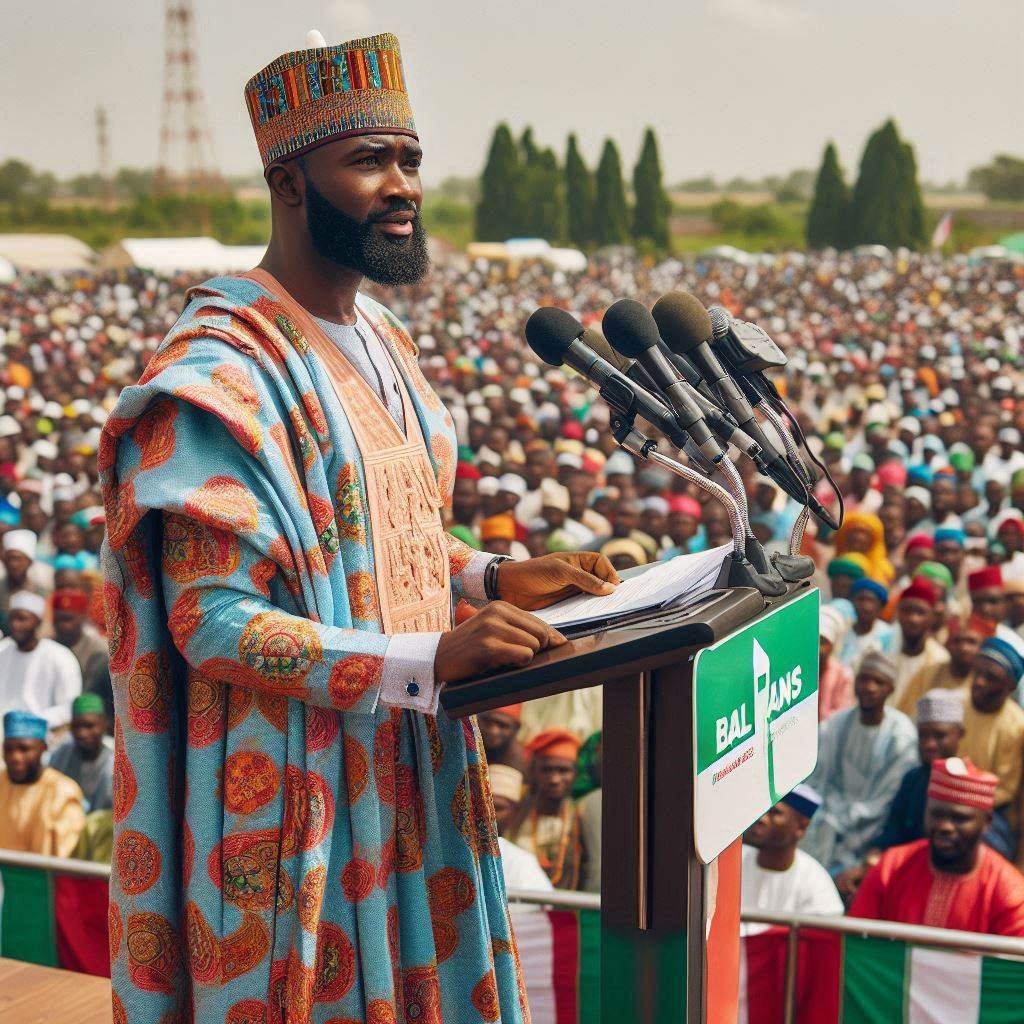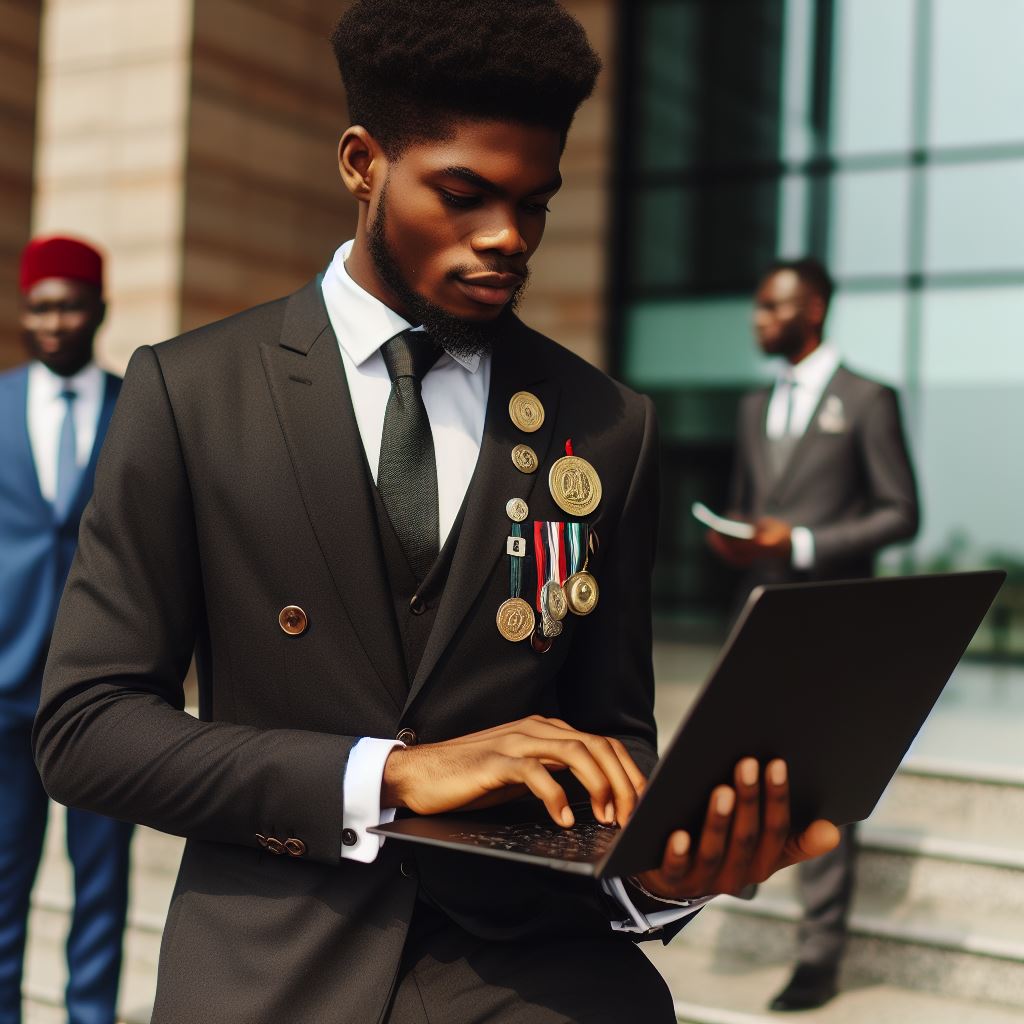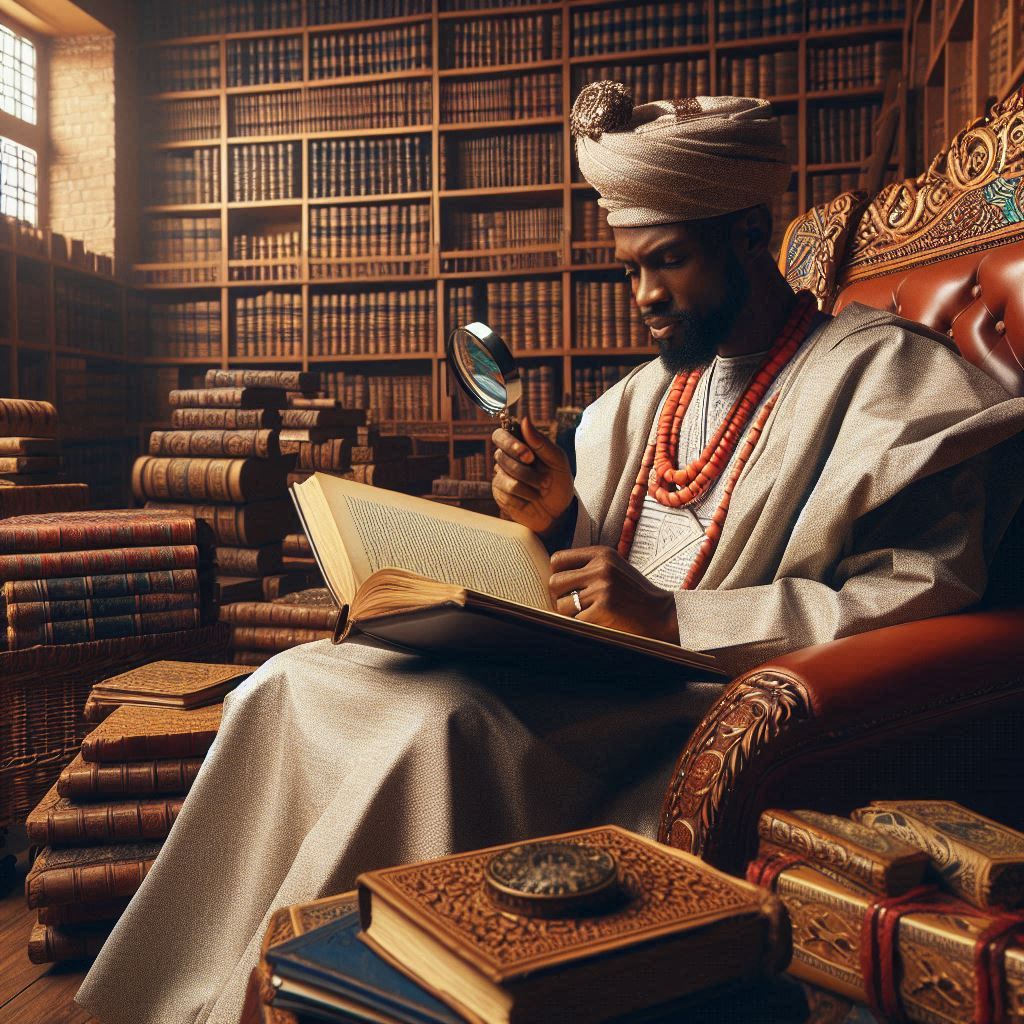Introduction
Public history in Nigeria engages communities, preserving and sharing historical narratives. It’s an active, inclusive approach to storytelling.
What is Public History?
Public history involves engaging with diverse audiences, utilizing various mediums to communicate historical narratives.
The Importance in Nigeria
Preserving Nigeria’s historical heritage through public history ensures cultural continuity and fosters national identity.
Engaging Communities
Public history actively involves communities in the preservation and interpretation of their own history.
Accessible Narratives
Through public history, Nigeria’s historical narratives become accessible to a broader audience, promoting inclusivity and understanding.
Challenges and Opportunities
Challenges such as funding constraints and technological barriers can be addressed through innovative approaches in public history.
In Nigeria, public history serves as a bridge between the past and present, fostering a deeper appreciation for the nation’s rich heritage.
Role of Museums in Preserving Nigeria’s History
When it comes to the role of museums and cultural institutions in community engagement in Nigeria, these institutions play a crucial part in preserving the country’s rich history and promoting historical awareness among local communities.
Museums serve as repositories of Nigeria’s cultural heritage, housing artifacts, artworks, and historical documents that tell the stories of the nation’s past.
These institutions play a vital role in safeguarding and showcasing the diverse cultural heritage of Nigeria for future generations to appreciate and understand.
Through curated exhibitions and educational programs, museums offer visitors opportunities to learn about Nigeria’s history, traditions, and customs.
By displaying artifacts and visuals, museums bring history to life, making it accessible and engaging for people of all ages and backgrounds.
Ways in Which Museums Engage with Local Communities to Promote Historical Awareness
Collaborative Projects
Museums collaborate with local communities to co-create exhibitions and programs that reflect the community’s history and traditions.
This partnership fosters a sense of ownership and inclusivity, making history more relevant to the community members.
Educational Initiatives
Museums organize educational workshops, lectures, and guided tours to engage community members in learning about Nigeria’s history.
These programs aim to raise historical awareness, promote cultural understanding, and stimulate curiosity about the past.
Outreach Programs
Museums reach out to schools, community organizations, and local residents through outreach programs that bring historical artifacts and resources directly to the community.
These initiatives aim to make history more accessible and relevant to a wider audience.
Cultural Events
Museums host cultural events, festivals, and performances that celebrate Nigeria’s rich cultural heritage.
These events provide opportunities for community members to engage with history through storytelling, music, dance, and traditional arts and crafts.
Digital Platforms
Museums use digital platforms, such as websites, social media, and virtual tours, to engage with a broader audience and promote historical awareness.
These online resources allow people to explore Nigeria’s history and heritage from anywhere in the world.
Community Consultation
Museums consult with local communities to gather input, feedback, and perspectives on their exhibitions and programs.
This collaborative approach ensures that the museum’s offerings resonate with the community’s interests and values, creating a sense of shared ownership over the cultural heritage.
Generally, museums and cultural institutions in Nigeria play a vital role in preserving the country’s history and engaging with local communities to promote historical awareness.
Through collaborative projects, educational initiatives, outreach programs, cultural events, digital platforms, and community consultation, museums strive to make history accessible, relevant, and engaging for all.
By fostering a sense of connection and pride in Nigeria’s cultural heritage, museums contribute to building a more informed and inclusive society that values and appreciates its past
Read: Impact of Communication Arts on Nigerian Media
Community-Based Historical Projects and Initiatives
Examples of successful community-based historical projects in Nigeria
- The Owo Museum in Ondo State, which was established through collaboration with local historians and community members.
- The Centre for Black Culture and International Understanding in Osun State, which focuses on preserving the history of the Yoruba people.
- The Living History Museum in Jos, which showcases the cultural and historical heritage of the people of Plateau State.
Importance of involving local communities in preserving and sharing their history
- Community involvement ensures that historical narratives are accurate and reflective of diverse perspectives.
- Engaging local communities promotes a sense of ownership and pride in preserving their heritage.
- It fosters intergenerational dialogue and knowledge transfer, passing down traditions and stories to future generations.
- Community participation leads to sustainable preservation efforts and a deeper appreciation of local history.
- Involving local stakeholders in historical projects fosters a sense of unity and collaboration among community members.
Read: Digital Media Trends in Communication Arts
Challenges in Public History and Community Engagement
Opportunities for growth and development in the field of public history in Nigeria
- Funding issues often hinder the implementation of public history projects in Nigeria.
- Lack of awareness about the importance of public history among the general population.
- Preservation of historical sites is a major challenge due to lack of resources and expertise.
- Limited access to historical archives and documents for researchers and historians.
- Political interference and lack of support from government authorities for public history initiatives.
Opportunities for Growth in Public History in Nigeria
- Increasing interest in cultural heritage and history among young Nigerians.
- Rising demand for skilled professionals in the field of public history and heritage management.
- Collaboration with international organizations and institutions for knowledge sharing and capacity building.
- Potential for economic growth through heritage tourism and cultural exchange programs.
- Advancements in technology can facilitate the digitization and preservation of historical records.
Most importantly, while there are numerous challenges facing public history and community engagement in Nigeria, there are also significant opportunities for growth and development in the field.
By addressing funding issues, raising awareness, and leveraging technological advancements, Nigeria can harness its rich cultural heritage to foster education, tourism, and national pride.
Read: Introduction to African and Asian Studies in Nigeria

Gain More Insights: Nigerian Languages and Their Influence on Pidgin English
Digital Technologies on Public History Initiatives in Nigeria
Digital technologies have played a significant role in shaping public history initiatives in Nigeria.
These technologies have enabled historians and cultural institutions to reach a wider audience and engage with the public in new and innovative ways.
Here are some of the key impacts of digital technologies on public history initiatives in Nigeria:
Increased Accessibility
One of the most significant impacts of digital technologies on public history initiatives in Nigeria is the increased accessibility to historical information.
Through digital platforms such as websites, online archives, and social media, people can now access a wealth of historical resources from the comfort of their homes. This has helped to democratize access to history and make it more inclusive.
Preservation of Cultural Heritage
Digital technologies have also played a crucial role in the preservation of Nigeria’s cultural heritage.
Through initiatives such as digitization projects, cultural institutions have been able to digitize and preserve historical artifacts, documents, and photographs.
This not only helps to protect these resources from damage but also ensures that they are accessible to future generations.
Engaging Younger Audiences
Digital platforms have proven to be effective tools for engaging younger audiences with history.
Through social media, blogs, podcasts, and other digital channels, historians and cultural institutions can tailor their content to appeal to younger generations.
This helps to spark interest in history among a demographic that may not have been traditionally interested in the subject.
Interactive Learning Experiences
Digital technologies have also enabled the creation of interactive learning experiences that engage the public in new and dynamic ways.
Virtual reality tours, online exhibitions, and interactive timelines are just some examples of digital tools that can enhance the public history experience.
These interactive experiences help to bring history to life and make it more engaging and accessible to a wider audience.
Collaboration and Community Engagement
Digital platforms have facilitated collaboration and community engagement in public history initiatives in Nigeria.
Historians, cultural institutions, and community groups can now work together remotely to digitize, preserve, and share historical information.
This collaborative approach not only fosters a sense of community but also helps to create a more comprehensive and inclusive historical narrative.
Examples of How Digital Platforms Are Being Utilized to Engage with a Wider Audience
To illustrate the impact of digital technologies on public history initiatives in Nigeria, here are some examples of how digital platforms are being utilized to engage with a wider audience:
- Virtual Exhibitions: Cultural institutions such as museums and galleries are using virtual exhibitions to showcase their collections online and reach audiences beyond their physical locations.
- Online Archives: Historical archives and libraries are digitizing their collections and making them available online, allowing researchers and the public to access rare and valuable historical documents.
- Social Media Campaigns: Historians and cultural institutions are using social media platforms such as Twitter, Instagram, and Facebook to share historical photos, stories, and facts with a broader audience.
- Podcasts and Webinars: Historians are creating podcasts and hosting webinars to discuss different aspects of Nigerian history and culture, attracting listeners and viewers from around the world.
- Interactive Educational Games: Digital platforms are being used to develop interactive educational games that teach users about Nigerian history in a fun and engaging way.
All in all, digital technologies have had a profound impact on public history initiatives in Nigeria.
These technologies have revolutionized the way historical information is accessed, preserved, and shared, making history more inclusive, engaging, and relevant to a wider audience.
By leveraging digital platforms effectively, historians and cultural institutions can continue to expand the reach and impact of public history initiatives in Nigeria.
Read: Communication Arts: Balancing Theory and Practice
Partnership and Collaboration in Public History
Importance of Collaboration between Stakeholders
Collaboration ensures diverse perspectives are included, enriching historical narratives for a more comprehensive understanding.
Partnerships with different stakeholders lead to the preservation of Nigeria’s history in a holistic manner.
Collaborative efforts help in sharing resources, knowledge, and expertise, maximizing the impact of public history projects.
By involving various stakeholders, public history initiatives can reach a wider audience and create greater awareness.
Working together fosters a sense of unity and collective responsibility towards preserving Nigeria’s rich historical heritage.
Collaboration encourages innovation and creativity, leading to the development of unique and engaging public history programs.
Connecting with different partners allows for the integration of diverse cultural perspectives, making historical narratives more inclusive.
Partnerships between Government, NGOs, and Local Communities
Government agencies play a crucial role in providing support, resources, and infrastructure for public history projects.
NGOs often bring specialized knowledge, funding opportunities, and community engagement strategies to public history initiatives.
Transform Your Career with Expert Guidance
Get personalized mentorship consulting that’s tailored to your unique path. Our expert advice is actionable and exclusive.
Get StartedLocal communities are the custodians of oral histories, cultural traditions, and heritage sites, making them essential partners.
Collaboration between these stakeholders ensures a more sustainable approach to preserving Nigeria’s history for future generations.
Government partnerships can help in securing funding, legal permissions, and institutional support for public history endeavors.
NGOs bring expertise in research, archival management, and public programming, enhancing the quality of historical narratives.
Engaging local communities fosters cultural pride, ownership, and a sense of agency in preserving their heritage.
Enhancing Public History Initiatives through Collaboration
Collaborative efforts lead to the development of innovative and inclusive public history exhibitions, events, and programs.
Partnerships allow for the sharing of best practices, knowledge, and resources, leading to more impactful historical interpretation.
Working together creates a network of support, expertise, and accountability, ensuring the success and longevity of public history projects.
NGOs can facilitate community outreach, educational programs, and advocacy efforts to raise awareness about Nigeria’s history.
Local communities can contribute valuable insights, narratives, and cultural traditions to public history initiatives, enriching the overall experience.
Government partnerships provide a framework for policy development, funding allocation, and strategic planning in public history preservation.
Collaboration between stakeholders fosters a sense of shared responsibility and collective ownership of Nigeria’s historical heritage.
By working together, government agencies, NGOs, and local communities can create a vibrant and sustainable ecosystem for public history initiatives in Nigeria.
Conclusion
Recap: Public history and community engagement vital for Nigeria’s historical preservation and cultural enrichment.
Importance: They bridge gaps, foster unity, and promote understanding of Nigeria’s diverse heritage.
Through collaborative efforts, communities reclaim ownership of their narratives, preserving authenticity.
Active participation ensures inclusivity, representing voices often marginalized in traditional narratives.
In Nigeria, public history fosters national identity, strengthening bonds among diverse ethnicities.
Community engagement facilitates dialogue, fostering reconciliation and collective memory preservation.
Preserving Nigeria’s rich history is a collective responsibility, demanding active involvement.
Call to Action: Let’s join hands, engage communities, and safeguard Nigeria’s historical legacy.
Together, let’s preserve, celebrate, and share Nigeria’s diverse cultural tapestry.
By actively participating, we ensure that future generations inherit a vibrant and inclusive historical narrative.
Let’s embark on this journey, embracing the power of public history and community engagement.
Together, we shape Nigeria’s story, weaving a tapestry of unity, resilience, and cultural pride.




